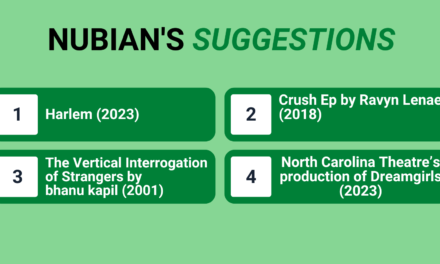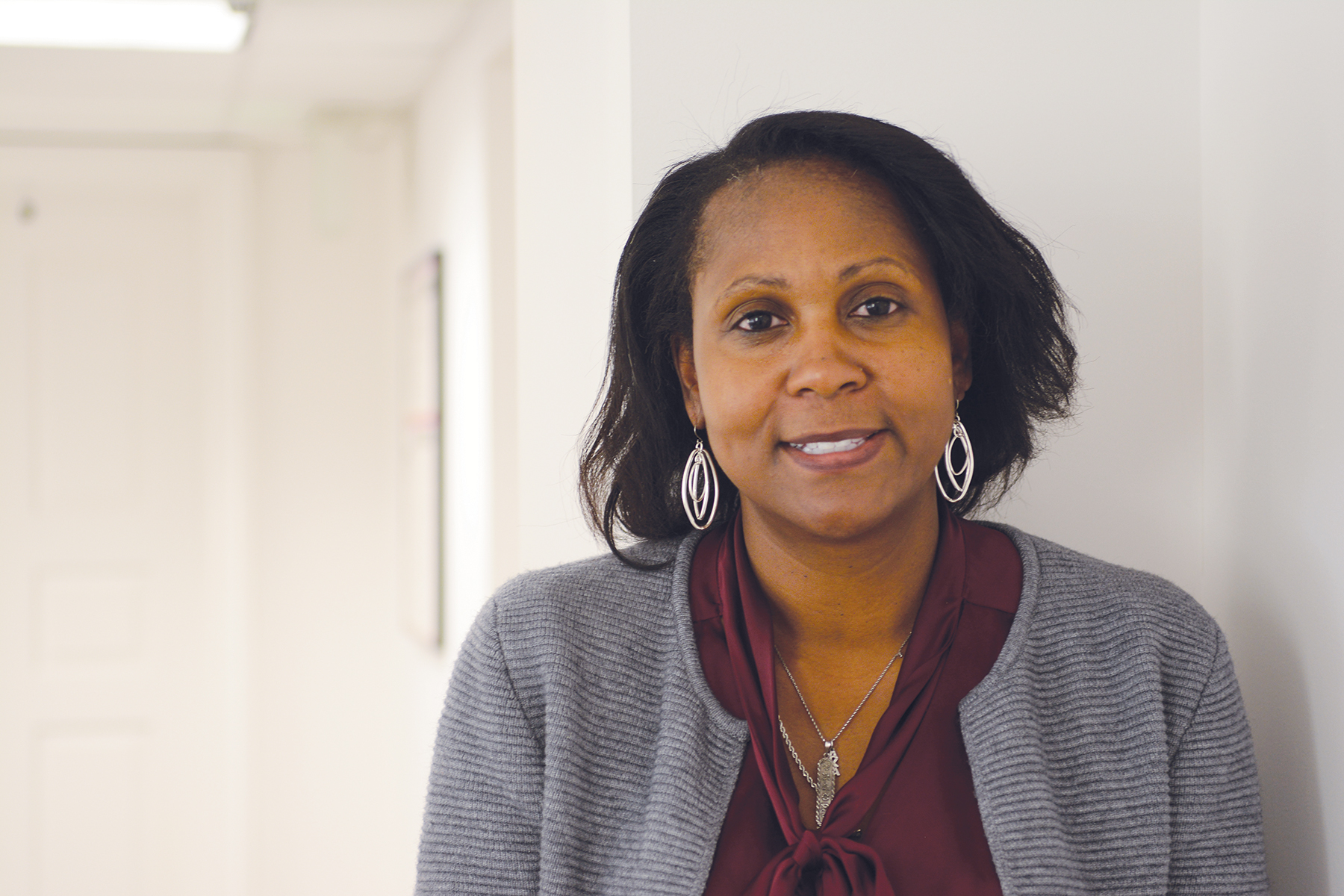Toni ‘Mama’ Thorpe stands with a drum in front of the breakroom and former Nubian Message office in the African American Cultural Center Monday, Nov. 27. Thorpe returns to campus to celebrate the Nubian’s 25th anniversary.
Yesenia Jones | Staff Writer
Toni Thorpe, who is affectionately called Mama Thorpe by those who know her, originally joined NC State’s faculty in 1991 when she was hired through NC State’s theater department as an office manager. “I come from a family of teachers,” Mama Thorpe said. “My mom majored in history and later went on to be a teacher.”
Inspired by the educators around her and her involvement in the theater department, Mama Thorpe developed a passion for student outreach. The passion she holds can be seen through the many initiatives she helped fuel and create during her time as a staff member.
Her goal was often to increase cultural awareness on campus and create safe spaces for African-American students. These initiatives include Heritage Day, Blacks in Wax and many more. As an elder in the community, she enjoyed working with students because they have consistently provided her with an inside look at the perspectives and thoughts of younger generations.
“Working with students helps me see the world… I’m 60, so the world I see is different from how an 18-year-old sees the world,” Thorpe said.
As a leader in student outreach on campus, it was only natural that Mama Thorpe also held a position on the Student Media Newspaper Advisory Board, along with her many other involvements on campus. As a member on the board, she aided in choosing an editor-in-chief for the Nubian Message for many years.
Her involvement as a board member, and later as the program coordinator for the African American Cultural Center, also granted her close proximity to the Nubian Message office. Mama Thorpe maintained an open relationship with past editors and staff of the Nubian Message. She could often be found bringing them food or simply dropping by the newspaper’s office for a visit. Staff members often asked her for her opinion on angles or people to interview.
Mama Thorpe wrote for an African-American newspaper during her undergraduate years at East Carolina University in Greenville, North Carolina.
“Having worked at a paper at a predominately white institution and understanding the importance of the paper…, I felt it was my responsibility,” Thorpe said. “I wanted the [Nubian] editor and staff to know that I was in their corner.”
She sees the Nubian Message and other newspapers like it as a necessary form of cultural education instead of a separationist item.
“Even though times have changed, there is still a void in understanding the African American student body,” said Thorpe. She argues that all too often people believe that if history is erased or forgotten it will just go away, however, this mindset is often detrimental for future generations.
“There is a psychological effect when the truth isn’t told… that’s why the Nubian Message is so important,” Thorpe said.
As someone who values truth and honesty, whenever large events occurred, Mama Thorpe looked forward to reading the paper and viewing the student’s very honest perspectives.
“I always remember when President Obama was elected… I couldn’t wait to read the paper,” Thorpe said. While the Obama election issue was one of her favorites, she also has always enjoyed the paper’s coverage of Heritage Day as well as the coverage of her retirement.
“I will always cherish the tribute that was done in honor of my retirement,” Thorpe said.
“The Nubian Message staff has always worked so hard,” Thorpe said. Mama Thorpe’s position in the African American Cultural Center allowed her to witness the long and often tiresome production nights of writers. Mama Thorpe recalls hearing stories of Nubian Message members staying in the newspapers office as late as two o’clock in the morning.
Mama Thorpe is grateful that the Nubian Message consistently covers traditionally underrepresented groups and events on campus and in the greater Raleigh area. She hopes that their coverage of marginalized people continues on for many years.
“I just want to thank the students… for continuing the legacy and standing on such a strong foundation,” Thorpe said.





